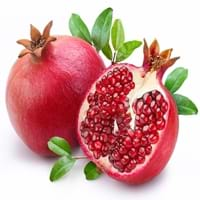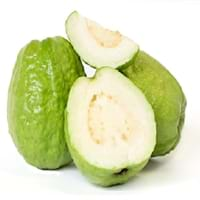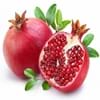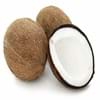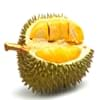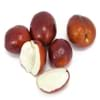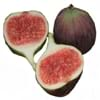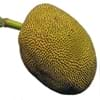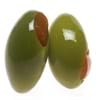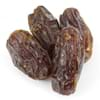Health Benefits
Cancer prevention, Heart care, Helps in cartilage regeneration, Improves stomach health, Increase in haemoglobin, Increases metabolic rate, Prevents constipation
Cancer prevention, Diarrhea treatment, Prevents constipation, Scurvy treatment, Treatment of dysentary
General Benefits
Boosts immune system, Controls blood pressure, Controls blood sugar levels, Digestive aid, Maintains healthy cholesterol level
Controls blood pressure, Cures cough, Improves eye vision, Maintains healthy cholesterol level, Treatment of common cold
Skin Benefits
Anti-aging benefits, Skin rejuvenation, Treatment of acne
Anti-aging benefits, Brightens and lightens complexion, Hydrates skin, Treatment of skin diseases
Hair Benefits
Prevents hair loss, Promotes longer and healthier hair, Treatment of dandruff
Prevents hair loss
Allergy Symptoms
Abdominal pains, Anaphylaxis, Itching
Breathing difficulty, Coughing, Runny nose, Sneezing, Swelling of mouth, tongue or lips, Wheezing
Side Effects
Allergic reaction, Cold, Breathing difficulty, Irritation, Swelling
Hair thinning, Nail thinning, Skin problems, Tooth decay, Weakness, Possibly unsafe during pregnancy
Best Time to Eat
Best if taken as a breakfast (or empty stomach), As a snack in the late afternoon, Eat the fresh ones, avoid mixing with any other foods, don't eat after meal., Morning time (before lunch)
As a snack in the late afternoon, Don't consume at night and before bed, Eat the fresh ones, avoid mixing with any other foods, don't eat after meal., Morning time (before lunch)
Vitamin B5 (Pantothenic Acid)
Vitamin C (Ascorbic Acid)
Vitamin K (Phyllochinone)
Calories in Fresh Fruit with Peel
Not Available
Calories in Fresh Fruit without Peel
Not Available
Calories in Frozen Form
Not Available
Not Available
Calories in Canned Form
Not Available
Type
Tree fruit
Tree fruit, Tropical
Season
Autumn
All seasons
Varieties
Balegal, Crab, Cloud, Francis, Freshman and Granada
Lucknow 49, Allahabad Safeda, Chittidar, Harijha, Apple guava, Hafshi, Arka Mridula and Allahabad Surkha
Color
Dark red, Light pink-red
Green, Pink, Yellow
Taste
Juicy, Sweet
Sweet-Sour
Origin
India, Iran
Central America, Mexico, South America
Soil Type
Clay, Sand
Loam, Rocky, Sandy
Climatic Conditions
Cold, Dry, Hot
Sunny
Facts about
- Pomegranate means apple with many seeds.
- It was called as the “apple of Grenada” in early English.
- In Hinduism, this fruit symbolizes prosperity and fertility.
- Pomegranate trees can live upto 200 years.
- The black pigment in Guava leaves is used for textile applications.
- Guava leaves are used to make tea.
- Oils extracted from guava seeds are used in various cosmetics.
- Guava wood is used for decorative purposes.
Other Countries
Africa, India, Middle east, Pakistan
China, Indonesia, Mexico, Nigeria, Pakistan, Philippines, Thailand
Top Importer
Europe
Canada
Botanical Name
Punica granatum
Psidium guajava
Synonym
Punica malus
Not Available
Subkingdom
Tracheobionta
Tracheobionta
Division
Magnoliophyta
Magnoliophyta
Class
Magnoliopsida
Magnoliopsida
Family
Lythraceae
Myrtaceae
Species
P. granatum
Psidium guajava
Generic Group
Pomegranate
Myrtle
Difference Between Pomegranate and Guava
We might think that Pomegranate and Guava are similar with respect to nutritional value and health benefits. But the nutrient content of both fruits is different. Pomegranate and Guava Facts such as their taste, shape, color, and size are also distinct. The difference between Pomegranate and Guava is explained here.
The amount of calories in 100 gm of fresh Pomegranate and Guava with peel is Not Available and 68.00 kcal and the amount of calories without peel is 83.00 kcal and Not Available respectively. Thus, Pomegranate and Guava belong to High Calorie Fruits and Low Calorie Fruits category.These fruits might or might not differ with respect to their scientific classification. The order of Pomegranate and Guava is Myrtales and Myrtales respectively. Pomegranate belongs to Lythraceae family and Guava belongs to Myrtaceae family. Pomegranate belongs to Punica genus of P. granatum species and Guava belongs to Psidium genus of Psidium guajava species. Beings plants, both fruits belong to Plantae Kingdom.
